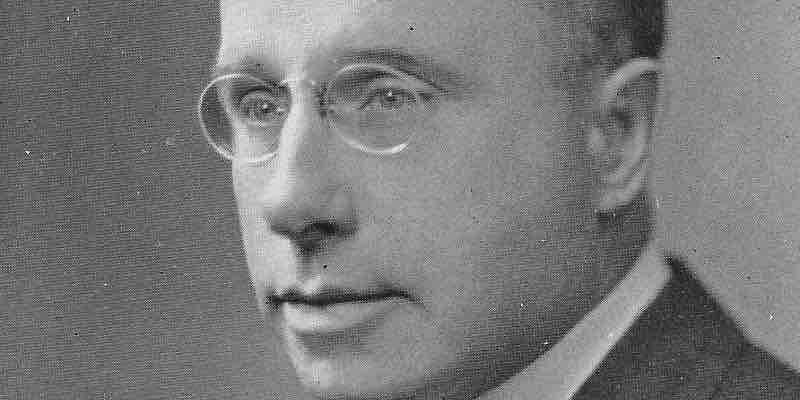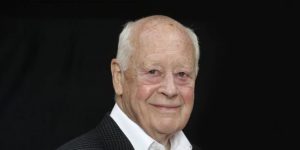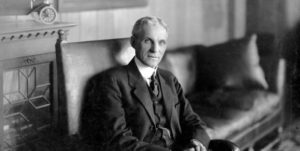Chester Barnard

Chester Barnard (Chester Irving Barnard, November 7 1886 – June 7 1961) was an American manager, public administrator and author of various titles in management theory and organisational studies. His signature book from 1938, The Functions of the Executive, describes an organisational theory and the positions of supervisors in organisations.
Chester Barnard biography
Chester Barnard was born on November 7 1886 in Malden, Massachusetts. He lost his mother when he was only five years old. His father was a mechanic and encouraged Barnard to study. After completing primary school, he learned to tune pianos.
Barnard used his income from piano tuning to fund the costs of the Mount Hermon Preparatory School and eventually received a scholarship to Harvard University. During his studies at Harvard he continued to work. He obtained a diploma in economics there. While he excelled at Harvard and nearly completed a four-year programme in three years, he left school before graduating. The reason for this was that he missed a course in laboratory sciences.
In 1909, Chester Barnard left Harvard and started working at the American Telephone and Telegraph Company (AT&T) in Boston as a statistician at the age of 23. He worked there for 39 years. From this position, he was able to climb the ladder to the position of vice president of the Bell Telephone Company of Pennsylvania in 1926 and president of New Jersey Bell Telephone Company in 1927.
In the period of 21 years as president of the company, he carried out important activities; his two successful books were written in those years. However, it is striking that the Bell system deviates from the behaviour one of his main managers tolerated. Barnard didn’t do much with this, he separated his ‘personal decisions’ from his ‘organisational decision’ (as he called them in The Functions of the Executive).
During World War II, Barnard contributed to the war efforts by conveying his managerial knowledge to organising and managing the United Services Organisations, Inc. (USO). This job later led to a presidential medal for outstanding service.
In the post-war period, Barnard became interested in nuclear energy. He then worked as adviser to the UN Atomic Energy Commission and he was co-author of a report on the international control of nuclear energy.
In 1948, he subsequently retired as president of New Jersey Bell. After this, he chose to become president of the Rockefeller Foundation, which he did for four years. After retiring from the RF, he continued to work on improving society.
In 1957, Barnard was appointed a member of the New York City Board of Health. As a member of this board, he helped to create the city’s new health code.
In addition to his interests in management, energy, health and social responsibility, Barnard also had a passion for music. This passion led him to discover the Bach Society of New Jersey. He also supported the Newark Arts Theatre.
Chester Barnard died in 1961 at the age of 74. His calendars have been digitised and are available via the online collections of the Rockefeller Archive Center.
Vision of Working
Chester Barnard viewed organisations as systems for cooperation of human activity. He noticed that these usually don’t last long. According to him, organisations have a short lifespan because they fail to meet two essential criteria: effectiveness and efficiency.
Here, effectiveness is defined as: being able to achieve certain goals.
Additionally, the meaning of organisational efficiency was clearly different to Chester Barnard. He defined the efficiency of an organisation as the degree to which that organisation is able to satisfy the motives of individuals. When an organisation meets the motives of its members while achieving its explicit goals, the cooperation between its members will continue to exist.
The Functions of the Executive
The classic book of Barnard from 1938, The Functions of the Executive, discuss the functions of the executive power, but differ from his idea of cooperative systems.
Summary of the Functions of the Executive
- Setting up and maintaining a communication system;
- Safeguarding essential services of other members;
- Formulating organisational goals and objectives;
- To manage people and make sure they do their work.
Authority and Stimuli
Chester Barnard formulated two interesting theories: authority and stimuli. Both are viewed in the context of a communication system, based on seven essential rules:
- The communication channels must be clear;
- Everyone must be informed of the communication channels;
- Everyone must have access to the formal communication channels;
- Lines of communication must be as short and direct as possible;
- The competence of people who must function as communication centre, must be sufficient;
- The line of communication must not be broken when the organisation is operational;
- Each communication must be verified.
The above indicates that what makes communication authoritative lies with the subordinate rather than with multiple people.
Chester Barnard’s perspective had affinities with that of Mary Parker Follett and was unusual in those days. He believed that managers should gain authority by treating subordinates with respect and competence.
Concerning stimuli, he suggested two ways to convince subordinates to cooperate: tangible stimuli and persuasiveness. However, Chester Barnard placed more importance on persuasion. He described four general and four specific stimuli.
The specific stimuli were:
- Money and other material encouragements;
- Personal non-material distinctive opportunities;
- Desired physical labour conditions;
- Ideal advantages.
The general stimuli were:
- Associated attractiveness (based on compatibility with associated participations);
- Adapting labour conditions to common methods and attitudes;
- The possibility to participate in larger events;
- The conditions for communication with others (personal comfort with social relationships, opportunity for camaraderie, etc.);
- Learn to pronounce.
Chester Barnard Quotes
- “To try and fail is at least to learn; to fail to try is to suffer the inestimable loss of what might have been.”
- “The responsibility of the executive is (1) to create and aintain a sense of purpose and moral code for the organization; (2) to establish systems of formal and informal communication; and (3) to ensure the willingness of people to cooperate.”
- “A low morality will not sustain leadership long, its influence quickly vanishes, it cannot produce its own succession.”
- “Organizations endure, however, in proportion to the breadth of the morality by which they are governed. Thus the endurance of organization depends upon the quality of leadership; and that quality derives from the breadth of the morality upon which it rests.”
- “It is what we think we know that keeps us from learning.”
- “In a community all acts of individuals and of organizations are directly or indirectly interconnected and interdependent”
Publications and Books by Chester Barnard et al.
- 1986. Philosophy for Managers; Selected Papers of Chester I. Barnard. Edited by William B. Wolf and Haruki Iino.
- 1973. Conversations With Chester I. Barnard. Edited by William B. Wolf.
- 1958. Elementary Conditions of Business Morals.
- 1956. On the Teaching of Law in the Liberal Arts Curriculum. With Harold Joseph Berman. Harvard Law.
- 1956, 1948. Organization and Management. Routledge.
- 1946. A Report on the International Control of Atomic Energy. Doubleday, Incorporated.
- 1939. Dilemmas of Leadership in the Democratic Process. Princeton University.
- 1938. The Functions of the Executive. Harvard University Press.
How to cite this article:
Sari, J. (2019). Chester Barnard. Retrieved [insert date] from Toolshero: https://www.toolshero.com/toolsheroes/chester-barnard/
Published on: 11/25/2019 | Last update: 07/22/2022
Add a link to this page on your website:
<a href=”https://www.toolshero.com/toolsheroes/chester-barnard/”>Toolshero: Chester Barnard</a>






